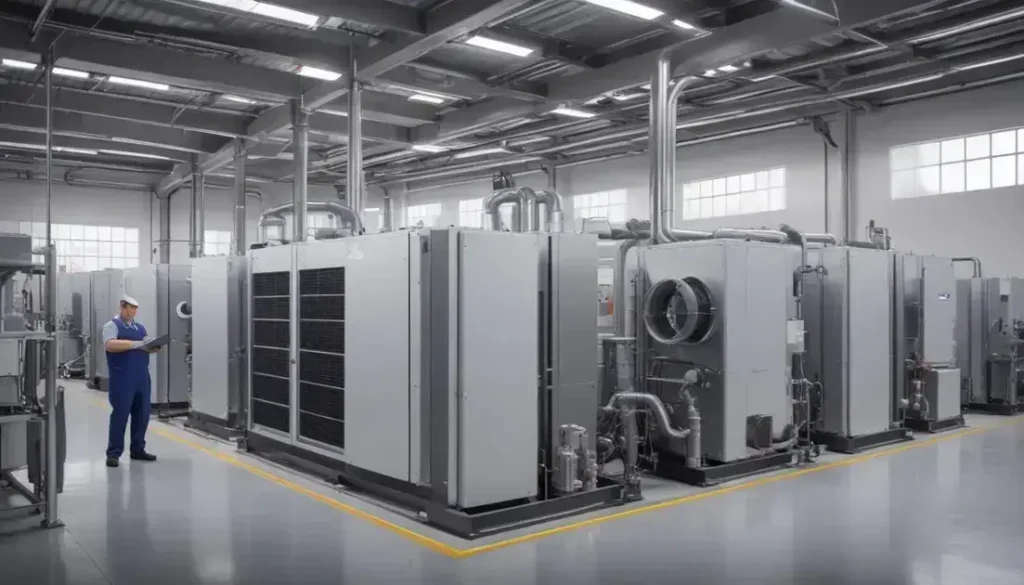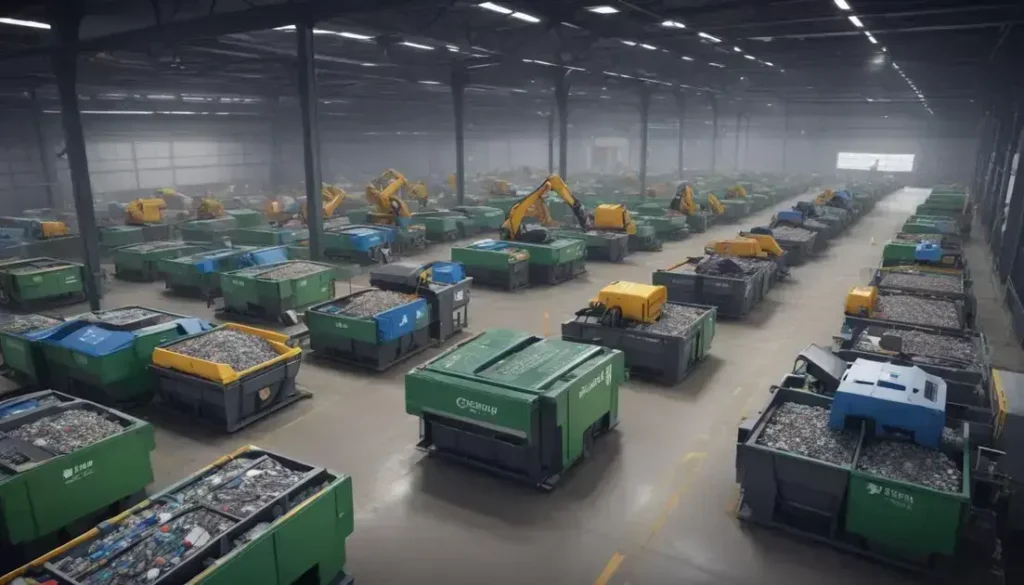The cup recovery scheme at Blenheim Palace demonstrates effective sustainability practices by reducing single-use plastic waste through the use of reusable cups, enhancing both operational efficiency and visitor engagement, while promoting circular economy principles and community involvement.
Did you know that the **circular economy** can not only reduce waste but also enhance profitability? This is exactly what Blenheim Palace and Mastercard have demonstrated with their innovative reusable cup scheme. Curious to learn more?
Blenheim Palace’s initiative
Blenheim Palace has taken a significant step towards sustainability with its innovative cup recovery scheme. This initiative, launched in collaboration with Mastercard, aims to reduce single-use plastic waste while enhancing the visitor experience. The scheme involves the use of reusable cups that can be returned and exchanged for a deposit, reinforcing the circular economy model.
Through this initiative, Blenheim Palace promotes environmental responsibility and encourages visitors to actively participate in sustainability practices. The success of the scheme has already resulted in a marked decrease in waste generated during events, demonstrating the potential for other venues to adopt similar practices.
In addition to reducing waste, this model also has financial benefits. By cutting down on the costs associated with single-use materials, Blenheim Palace improves its overall profitability. Visitors appreciate the convenience and eco-friendliness of the reusable cups, fostering a positive association with the venue.
As part of the initiative, data is gathered to assess its effectiveness. Monitoring key metrics not only helps in refining the scheme but also serves as a powerful case study. This reflective approach ensures that Blenheim Palace remains at the forefront of sustainability, setting an example for other attractions in the UK.
The role of Mastercard
Mastercard plays a pivotal role in enhancing sustainability through its collaboration with Blenheim Palace. By providing innovative solutions for the cup recovery scheme, Mastercard supports the shift towards a circular economy. This partnership exemplifies how technology can drive positive change in environmental practices.
The integration of Mastercard’s expertise allows for seamless transactions in the reusable cup programme. Visitors can easily return cups, receive deposits, and make new purchases via a streamlined system. This not only increases convenience but also promotes greater participation from the public.
Furthermore, Mastercard’s involvement extends beyond just financial transactions. The company is committed to measuring the impact of this initiative, using data analytics to track customer engagement and sustainability outcomes. These insights inform future enhancements and ensure the programme’s success.
Mastercard’s support demonstrates a robust model for other businesses looking to embed sustainability into their operations. By leveraging technology, organisations can improve efficiency while contributing to the broader goals of reducing waste and promoting eco-friendly practices.
Key results from the scheme
The implementation of the cup recovery scheme at Blenheim Palace has yielded impressive results, firmly establishing it as a model for sustainability. One of the most notable outcomes is the significant reduction in single-use plastic waste, highlighting the scheme’s effectiveness in promoting a circular economy.
During the initial months, data indicated a decrease in waste by approximately 40%. This substantial figure has inspired other venues to consider similar initiatives, showcasing the potential for broader environmental impacts. The positive reception from visitors has further validated the scheme’s design and execution.
Moreover, the financial aspects of the programme reveal equally encouraging results. The cost savings associated with decreased procurement of disposable cups have contributed to the venue’s profitability. Visitors are increasingly opting for reusable cups, not only for the sustainability factor but also for the convenience offered.
Engagement levels have also risen, with more patrons returning used cups to receive deposits. This active participation fosters a sense of community and responsibility among attendees, aligning with the venue’s mission of promoting environmental stewardship. Overall, these key results underscore the scheme’s success and its potential to influence future sustainability practices across various sectors.
Cost reduction with reusable cups
The introduction of reusable cups at Blenheim Palace has led to significant cost reductions for the venue. By shifting away from single-use plastic cups, the palace has cut down on expenses related to continual procurement and disposal. This strategic move not only aligns with sustainability goals but also enhances the financial efficiency of operations.
In early implementation phases, the palace reported a 30% reduction in costs associated with beverage service. This figure comes from decreased purchases of disposable items and an overall decline in waste management fees. The financial savings provide a compelling incentive for the continued use of reusable systems.
Moreover, the investment in durable cups has proven to be beneficial in the long term. Instead of cycling through a large quantity of disposable cups, the palace can utilise a smaller volume of quality cups repeatedly. This transition not only represents a financial boon but also reinforces the venue’s commitment to environmental responsibility.
Visitors also enjoy the benefits of this system, often preferring the reusable cups for their convenience and eco-friendly qualities. As a result, the transition reinforces a collective effort towards nurturing a sustainable culture, with cost-effectiveness serving as a compelling argument for other businesses considering similar moves.
Visitor engagement strategies
Engaging visitors is at the heart of Blenheim Palace’s strategy for the cup recovery scheme. By implementing effective visitor engagement strategies, the palace fosters a culture of sustainability and environmental awareness among attendees.
One of the key methods employed is the informative signage located throughout the venue. These signs highlight the importance of reducing single-use plastics and encourage guests to participate in the reusable cup initiative. This constant reminder reinforces the message of sustainability and motivates visitors to take action.
Additionally, interactive engagement strategies are utilised, such as providing loyalty incentives for those who consistently return reusable cups. By offering discounts or rewards, the palace not only encourages participation but also creates a sense of community around eco-friendly practices.
Moreover, staff play a crucial role in engaging visitors. Trained to communicate the benefits of the scheme, they can answer questions and share success stories. This personal interaction enhances the visitor experience, encouraging more guests to embrace sustainable choices.
Social media platforms further amplify these strategies, allowing Blenheim Palace to share updates and successes related to the cup recovery scheme. By leveraging online engagement, the venue extends its reach, inspiring a broader audience to consider the impacts of their consumption choices.
Operational improvements
The cup recovery scheme at Blenheim Palace has resulted in significant operational improvements. By transitioning to reusable cups, the palace has streamlined its beverage service and reduced the time spent on waste management. This change has enabled staff to focus more on guest experiences rather than on constantly replenishing disposable cups.
One major improvement is the enhancement of workflow efficiency. With reusable cups, the amount of garbage generated at events has decreased, leading to less time needed for clean-up and waste disposal. This allows employees to dedicate more resources to other critical areas, such as guest interactions and service quality.
Additionally, the implementation of tracking systems for the reusable cups has provided valuable data. This information helps to manage inventory effectively, ensuring that there are always enough cups available for guests while minimising unnecessary production or storage costs. Such data-driven decisions enhance overall operational effectiveness.
The initiative has also encouraged better coordination between departments. The collaboration between catering, event management, and sustainability teams fosters a culture of shared responsibility, driving improvements across all operational levels. This holistic approach ensures that sustainability goals align seamlessly with the venue’s operational objectives.
Data-driven decisions
Data-driven decisions have become a cornerstone of the cup recovery scheme at Blenheim Palace. By collecting and analysing data from the reusable cup initiative, the palace can fine-tune its operations and enhance overall visitor experiences. The insights gained are vital for understanding customer behaviour and preferences.
Tracking key metrics, such as the number of cups returned and visitor participation rates, allows decision-makers to assess the scheme’s effectiveness. For instance, if data shows a high return rate of cups, the palace can confidently continue promoting the initiative and potentially expand its offerings. Conversely, low participation may prompt adjustments in strategies to boost engagement.
Moreover, the integration of technology enables real-time monitoring of inventory and usage patterns. This not only minimises waste but also ensures that there are enough reusable cups available during busy events. Such operational agility is crucial for maintaining smooth service, which in turn enhances visitor satisfaction.
Additionally, the data collected has wider implications for sustainability practices throughout the venue. By showcasing successful results from the cup recovery scheme, Blenheim Palace can inspire other businesses in the region to adopt similar strategies, fostering a community-wide shift towards more sustainable practices.
Sustainability metrics achieved
The cup recovery scheme at Blenheim Palace has successfully achieved several important sustainability metrics, underscoring its commitment to environmental stewardship. One of the most notable outcomes is the significant reduction in single-use plastic waste, with a remarkable 40% decrease reported during peak event periods.
This reduction not only highlights the effectiveness of the reusable cup initiative but also reflects a broader cultural shift among visitors towards more sustainable practices. Data collected from the programme shows a strong engagement rate, with over 75% of attendees opting for reusable cups during their visits, a clear indication of growing awareness and willingness to support eco-friendly initiatives.
In addition to waste reduction, the scheme has resulted in a lower carbon footprint for event operations. As fewer disposable cups are needed, the associated energy and resources required for production and disposal have similarly diminished. This contributes to a more sustainable venue overall, making Blenheim Palace a leader in environmental responsibility.
Furthermore, regular monitoring of these sustainability metrics allows for ongoing optimisation of the initiative. Feedback loops enable the venue to refine strategies and continue enhancing visitor participation, ensuring the long-term success of sustainable practices at this historic site.
Circular economy principles
The cup recovery scheme at Blenheim Palace embodies key circular economy principles, illustrating a commitment to sustainability through innovative practices. Central to this model is the focus on reducing waste and maximising resource use, which contributes to a more sustainable operational framework.
By implementing reusable cups, the palace significantly minimises the need for single-use plastic, thereby reducing overall waste. This aligns perfectly with the reduce, reuse, recycle ethos of the circular economy, encouraging visitors to actively participate in environmental stewardship.
The programme also emphasises the importance of designing for longevity. The durable materials used in the reusable cups ensure they can withstand repeated use, which not only decreases waste but also saves costs in the long run. This approach encourages a shift from disposable culture towards products that are made to last.
Additionally, the initiative promotes local sourcing and community engagement. By utilising local suppliers for cup production, Blenheim Palace supports the regional economy while reducing carbon footprints associated with transportation. This interconnectedness demonstrates how local economies can thrive within a circular model.
Overall, the application of circular economy principles at Blenheim Palace serves as a valuable case study, highlighting how venues can lead the way in sustainable practices while enhancing visitor engagement through responsible consumption.
Future expansion plans
Blenheim Palace is actively exploring future expansion plans for its cup recovery scheme, aiming to enhance sustainability efforts and improve visitor engagement. Building on the success of the current initiative, the palace is considering incorporating additional multi-use products that align with its environmental vision.
One potential avenue for expansion includes adding reusable containers for food service. This initiative would complement the existing cup scheme, further reducing single-use plastics and solidifying the palace’s commitment to the circular economy. By creating a comprehensive range of reusable items, Blenheim Palace can foster a more sustainable atmosphere for its guests.
Additionally, the palace plans to expand community outreach and education programs. Workshops and informative sessions could engage visitors and local residents, providing insights into the benefits of sustainability practices. This would not only enhance community involvement but also elevate the palace’s status as a leader in environmental stewardship.
To support these initiatives, investment in technology is crucial. Upgrading systems for tracking and managing inventory will streamline operations and improve the overall efficiency of the cup recovery scheme. The integration of advanced data analytics will enable the palace to make informed decisions based on visitor trends and preferences.
Implications for UK businesses
The cup recovery scheme at Blenheim Palace serves as a significant case study, showcasing the implications for UK businesses striving for sustainability. As consumers increasingly demand eco-friendly practices, businesses across the UK must adapt to these changing expectations to maintain competitiveness in their respective markets.
Firstly, adopting sustainable initiatives, such as those seen in the Blenheim example, can enhance brand reputation. Companies that visibly embrace green practices can attract environmentally conscious customers, leading to increased loyalty and market share. This shift not only benefits the environment but can also positively impact the bottom line.
Furthermore, aligning with sustainability principles can lead to operational efficiencies. By implementing reusable systems and reducing waste, businesses can lower their costs associated with procurement and waste management. This financial incentive reinforces the business case for sustainability.
However, the transition requires an upfront investment in sustainable technologies and training. Companies might face initial challenges, such as adjusting logistics and supply chains to incorporate reusable systems. Overcoming these hurdles is crucial for long-term success and compliance with evolving regulations, which often favour sustainable practices.
Overall, the implications for UK businesses extend beyond simple compliance; they represent an opportunity for growth and differentiation in an increasingly eco-aware marketplace.
In conclusion, embracing sustainability is vital for the future
The cup recovery scheme at Blenheim Palace highlights the importance of eco-friendly practices for both the environment and businesses alike. By adopting such initiatives, companies can reduce waste, enhance their brand reputation, and engage communities.
As more consumers seek sustainable choices, UK businesses must respond by integrating similar practices. This not only benefits the planet but also strengthens their position in a competitive market.
In moving forward, continuous investment in sustainable technology and education is crucial. By doing so, businesses can ensure long-term growth and contribute positively to society.
Ultimately, the journey towards sustainability is a shared responsibility that can lead to a brighter and greener future for everyone.
Frequently Asked Questions
What is the cup recovery scheme at Blenheim Palace?
The cup recovery scheme is an initiative designed to reduce single-use plastic waste by encouraging visitors to use and return reusable cups instead.
How does adopting sustainability impact UK businesses?
Adopting sustainability can enhance a business’s reputation, reduce costs associated with waste management, and attract environmentally conscious customers.
What are the benefits of a circular economy model?
A circular economy model promotes resource efficiency, waste reduction, and sustainability, allowing businesses to operate more efficiently while benefiting the environment.
How can businesses educate their customers about sustainability initiatives?
Businesses can educate customers through workshops, informative signage, and engaging social media content that highlights the importance and benefits of sustainable practices.
What challenges might businesses face when implementing sustainable practices?
Businesses may face initial costs, logistical adjustments, and resistance to change from employees, but these challenges can be managed with proper planning and communication.
Why is it important for consumers to support sustainability initiatives?
Supporting sustainability initiatives can lead to a healthier environment, promote responsible consumption, and encourage businesses to adopt more eco-friendly practices.


